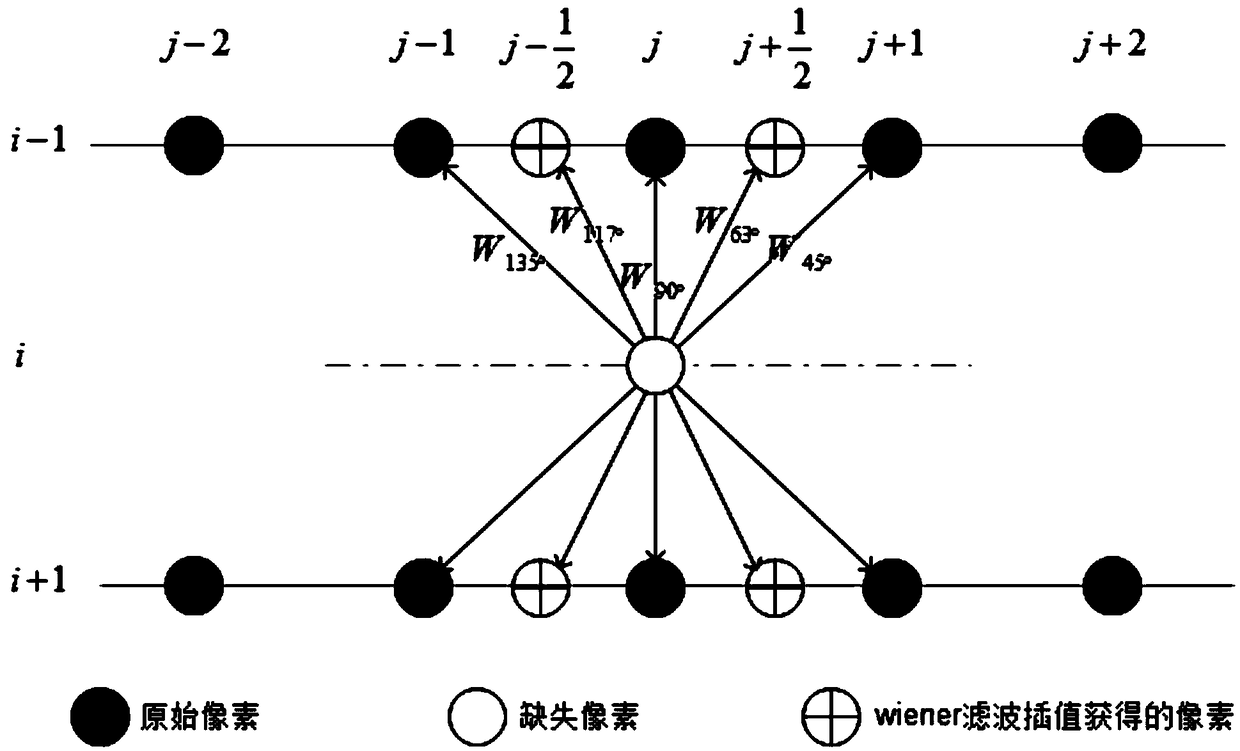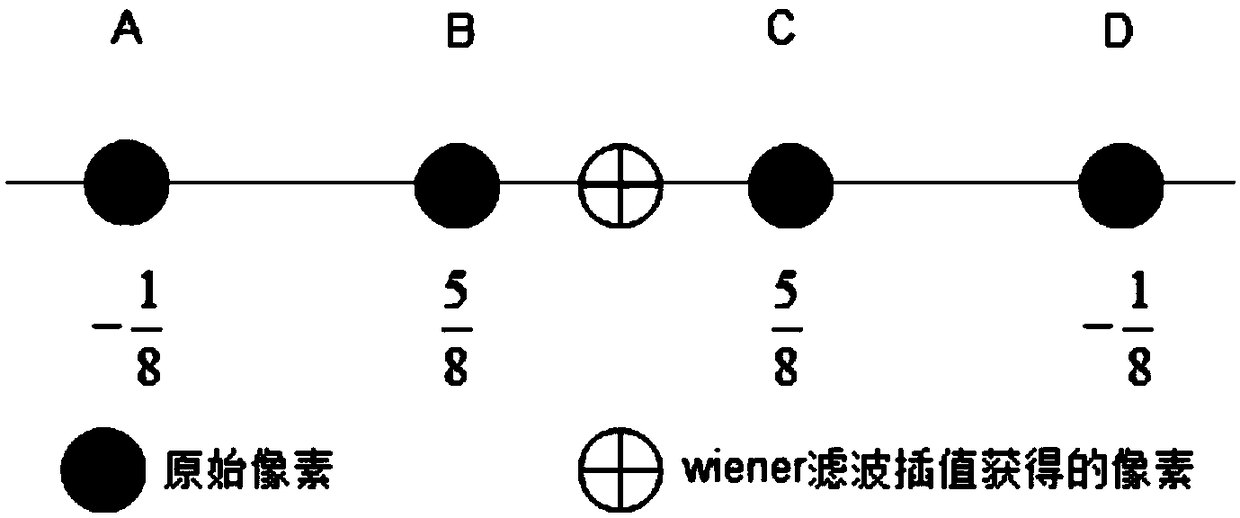An Intra-field Deinterlacing Method Based on Bilateral Filtering and Multidirectional Interpolation
An intra-field deinterlacing and bilateral filtering technology, applied in the field of video processing, which can solve the problems of image shaking, affecting the accuracy of interpolation results, rarely considering the distance relationship between adjacent pixels, etc., to achieve accurate interpolation results, low storage overhead, hardware low cost effect
- Summary
- Abstract
- Description
- Claims
- Application Information
AI Technical Summary
Problems solved by technology
Method used
Image
Examples
Embodiment approach
[0046] 1. Input the interlaced scanning video sequence, and the fields to be interpolated are selected sequentially from the start field to the end field according to the time sequence. For each pixel to be interpolated (i, j) in the field, select a total of 10 adjacent original pixels, namely (i-1, j-2), (i-1, j-1) , (i-1, j), (i-1, j+1), (i-1, j+2), (i+1, j-2), (i+1, j-1), ( i+1, j), (i+1, j+1), (i+1, j+2).
[0047] 2. Use the 10 adjacent original pixels and the 4-tap Wiener filter interpolation algorithm (the schematic diagram is as follows figure 2 shown) in and interpolate at. The specific interpolation method is as follows:
[0048]
[0049]
[0050]
[0051]
[0052] 3. Since the considered θ is 45°, 63°, 90°, 117° and 135°, a relatively sufficient natural image training is used to finally determine σ r and σ d The value of 30, 0.5. Use σ r =30 and the corresponding pixel value into the following formula to calculate (θ is 45°, 63°, 90°, 117° a...
PUM
 Login to View More
Login to View More Abstract
Description
Claims
Application Information
 Login to View More
Login to View More - R&D
- Intellectual Property
- Life Sciences
- Materials
- Tech Scout
- Unparalleled Data Quality
- Higher Quality Content
- 60% Fewer Hallucinations
Browse by: Latest US Patents, China's latest patents, Technical Efficacy Thesaurus, Application Domain, Technology Topic, Popular Technical Reports.
© 2025 PatSnap. All rights reserved.Legal|Privacy policy|Modern Slavery Act Transparency Statement|Sitemap|About US| Contact US: help@patsnap.com



